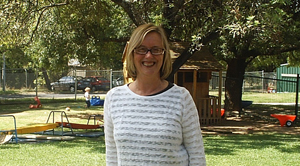 A Charles Sturt University (CSU) researcher has reported that two to three-year-old children who attended more hours in centre-based childcare were more socially competent, and that higher quality care was also linked to better outcomes for children.
A Charles Sturt University (CSU) researcher has reported that two to three-year-old children who attended more hours in centre-based childcare were more socially competent, and that higher quality care was also linked to better outcomes for children.Associate Professor in Early Childhood Education, Dr Linda Harrison, from the School of Teacher Education at the Bathurst Campus, said that the results of her preliminary analyses of Growing Up in Australia, a large national long-term study of young Australian children, provide good evidence of childcare in Australia having a different outcome for children than has been reported in large-scale studies from the United States (US) and the United Kingdom (UK).
“For the most part, the findings showed that childcare has a positive effect on children’s social and emotional wellbeing,” Professor Harrison said.
“While the question of whether long hours of child care present a risk for children’s social-emotional development is a continuing issue in research, this study indicated that there was no evidence that longer hours in care were linked to poorer outcomes.
“In fact, the results of this large study indicate the reverse. Children who attended more hours in centre-based childcare were more socially competent, and children who received more hours in home-based childcare had fewer behaviour problems.
“These results show how combinations of care, such as using a childcare centre as well as a close relative, friend, or family day carer, can benefit children in different but complementary ways.
“These findings, which differ from US and UK research, can be partially explained by Australia’s national system of quality assurance, which monitors levels of quality in all childcare centres and family day care homes.
“The results also showed that higher quality care was linked to better outcomes for children.





Social
Explore the world of social